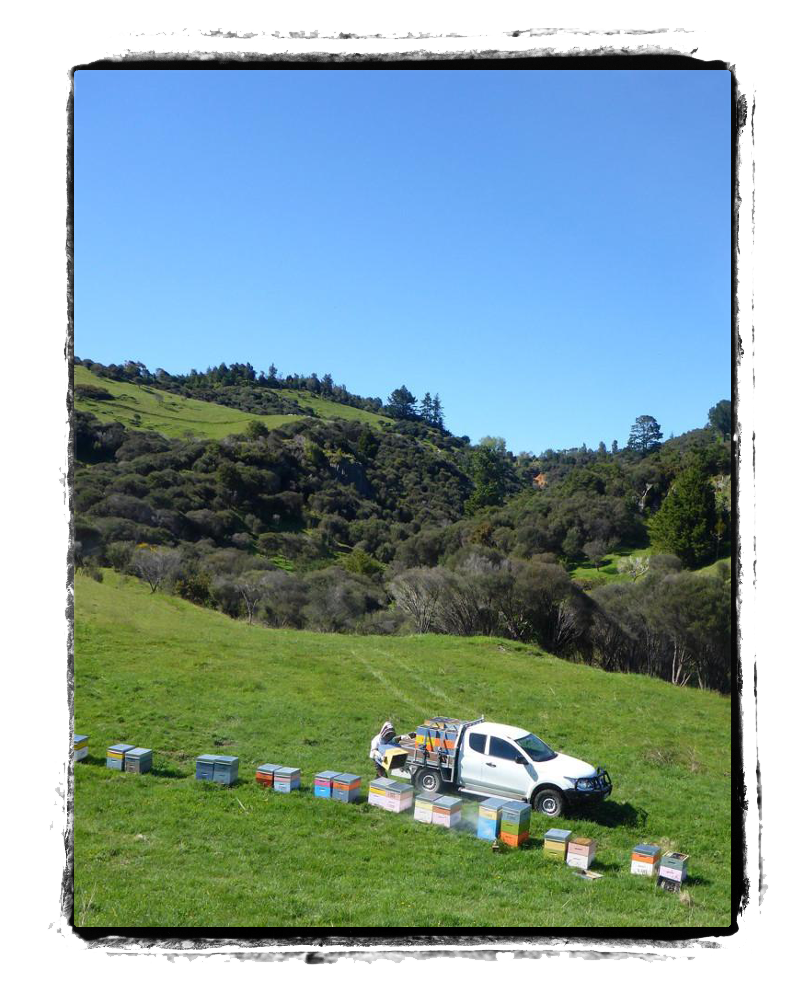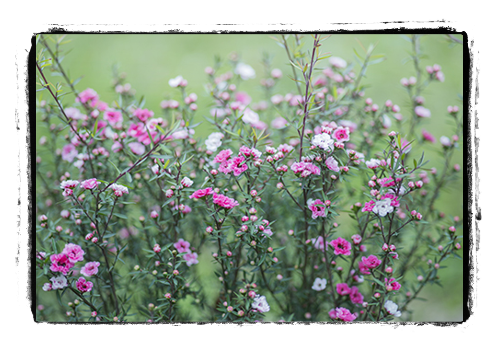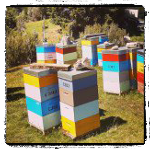Philosophy
 Rapanui Bees is a family based beekeeping business. We have been working with our own hobby apiaries for more than 40 years, then in 2008 formed Rapanui Bees Limited (RMP: Rapanui1) and began commercial production. Initially we sold our produce wholesale to Manuka Health, but we have recently started exporting to Singapore and selling online in New Zealand.
Rapanui Bees is a family based beekeeping business. We have been working with our own hobby apiaries for more than 40 years, then in 2008 formed Rapanui Bees Limited (RMP: Rapanui1) and began commercial production. Initially we sold our produce wholesale to Manuka Health, but we have recently started exporting to Singapore and selling online in New Zealand. Our honey
Our honey
 Mānuka
Mānuka
In the summer we take some hives to mānuka fields. Again the farmers here do not spray and the bees fly free to gather mānuka nectar over the short flowering season, in the heat of summer. Mānuka honey takes on the flavours of the region the hives are situated in, much like how a good red wine reflects the ground the vines have grown in. It is always exciting at harvest time having the first taste. Mānuka honey also contains methylglyoxal, a compound found in most types of honey but usually in only small quantites. In New Zealand mānuka honey the methylglyoxal levels are uniquely high, the higher the concentration of methylglyoxal, the stronger the antibiotic effect.
Winter
We bring all our hives back in the autumn to farms and bush land close to our home base at Parawera, making it easy for us to check that they are happy and healthy, top up their food supplies when needed and attend to other housekeeping duties like painting the hives, cleaning the bottom boards and replacing old dark wax frames with nice new, fresh golden combs. We make sure our bees are safely snuggled down for the winter, then leave them to rest up before the annual cycle starts again in early spring.
Our winters are mild with some frost, autumns are clear and crisp while summers are long and hot. The air is clear, there is no pollution of any kind and this reflects in the beautiful honey our bees produce.
Our Kaupapa
• To have happy healthy bees and to put them first at all times. • Employ staff who love bees and who enjoy working with like minded beekeepers.
• Provide an excellent workplace for all to enjoy.
• Show a strong commitment to excellence and quality in all we do.
• Use safe work practices.
• To use sustainable methods in all areas of our beekeeping.
• Keep as close to nature as possible and respect the constraints she places on our beekeeping activities.
• Maintain a successful business that recognisies and values the contribution made by all staff and whanau.
• And have lots of fun on the way.
Some whakatauaki (proverbs or sayings) we like:
• “Feel the fear and do it anyway!” - Susan Jeffers• “Nau te rourou naku te rourou” - (Your basket and my basket. Each can make a contribution to the whole)
• “To achieve great things, two things are needed, a plan and not quite enough time” - Leonard Bernstein
• “The impossible is just a myth!” - (on the back of a rough boy’s ute)
• “Mauri mahi, mauri ora; mauri noho, mauri mate.” - (Industry begets prosperity; idleness begets poverty)
• “He mahi kai te taonga” - (Survival is the treasured goal)
It depends on the day which whakatauaki we use!

 Deutsch
Deutsch
 English
English
